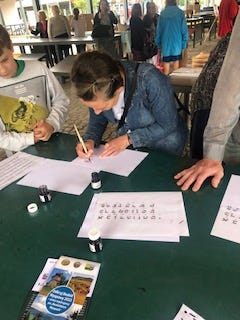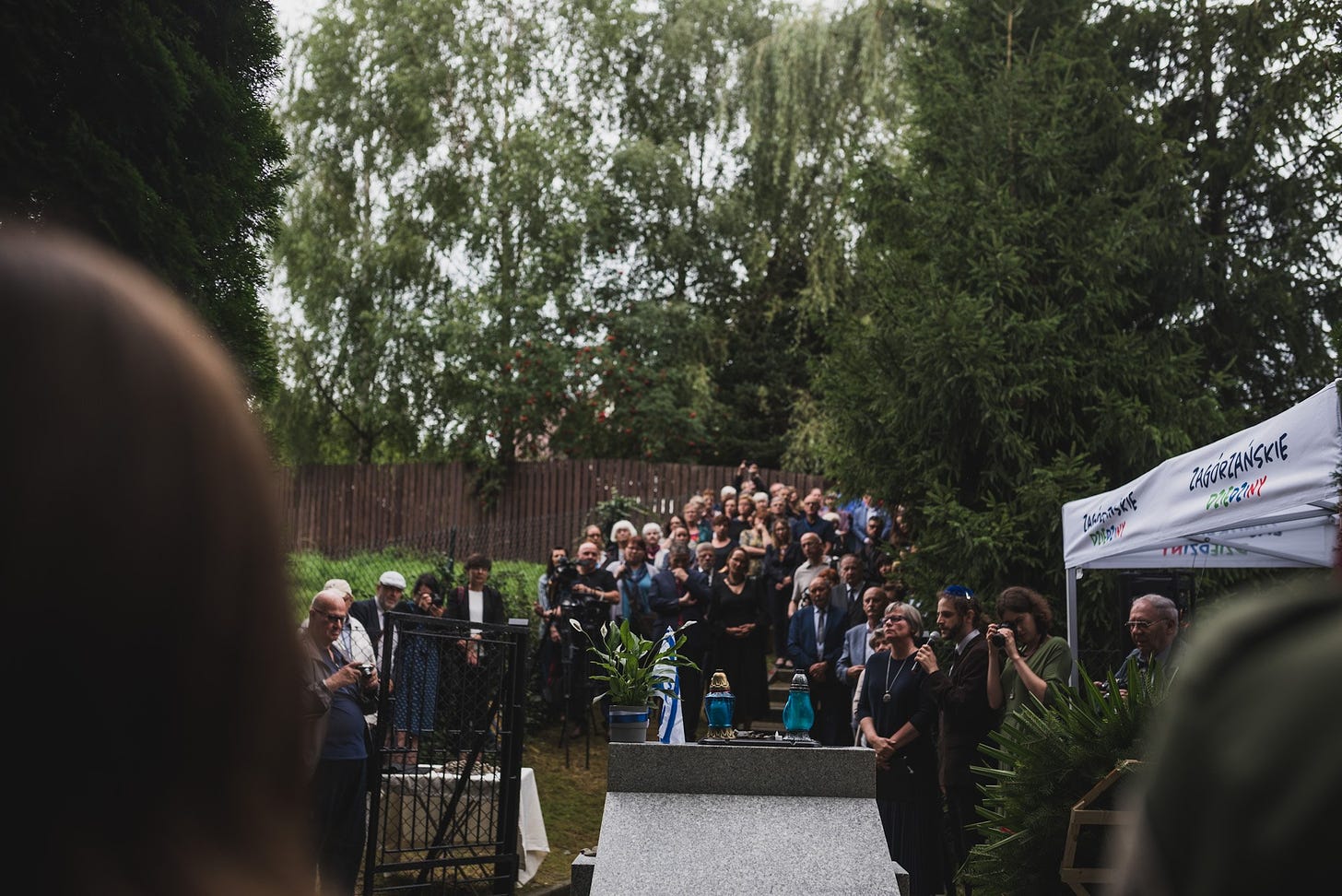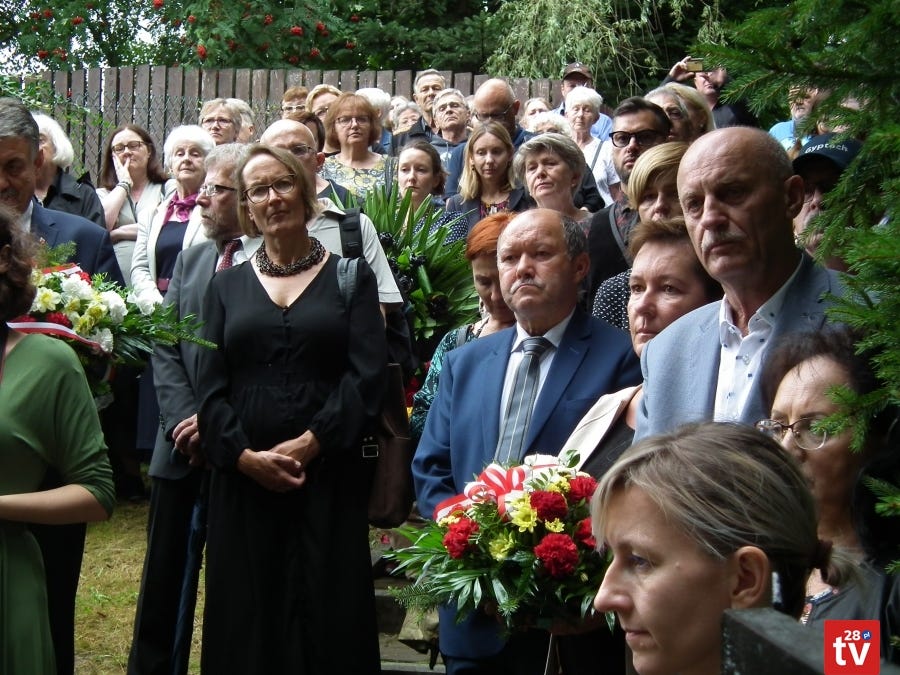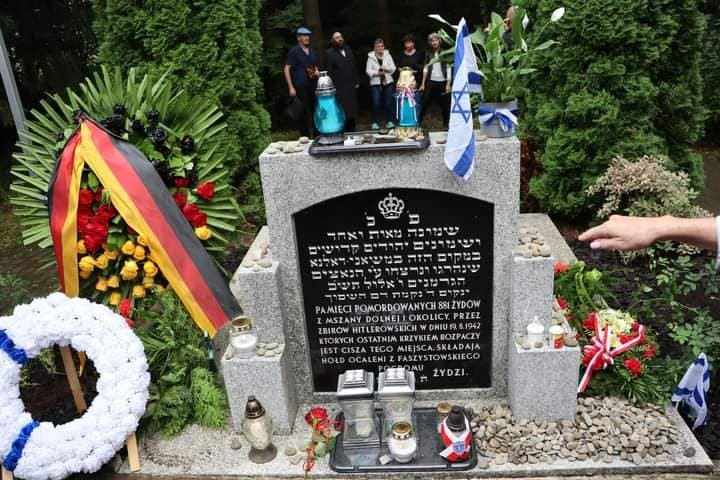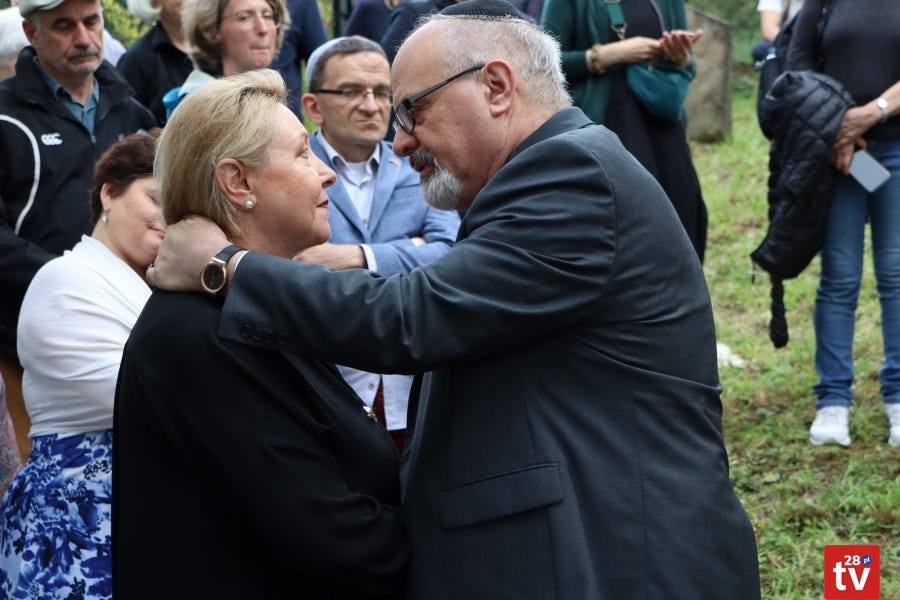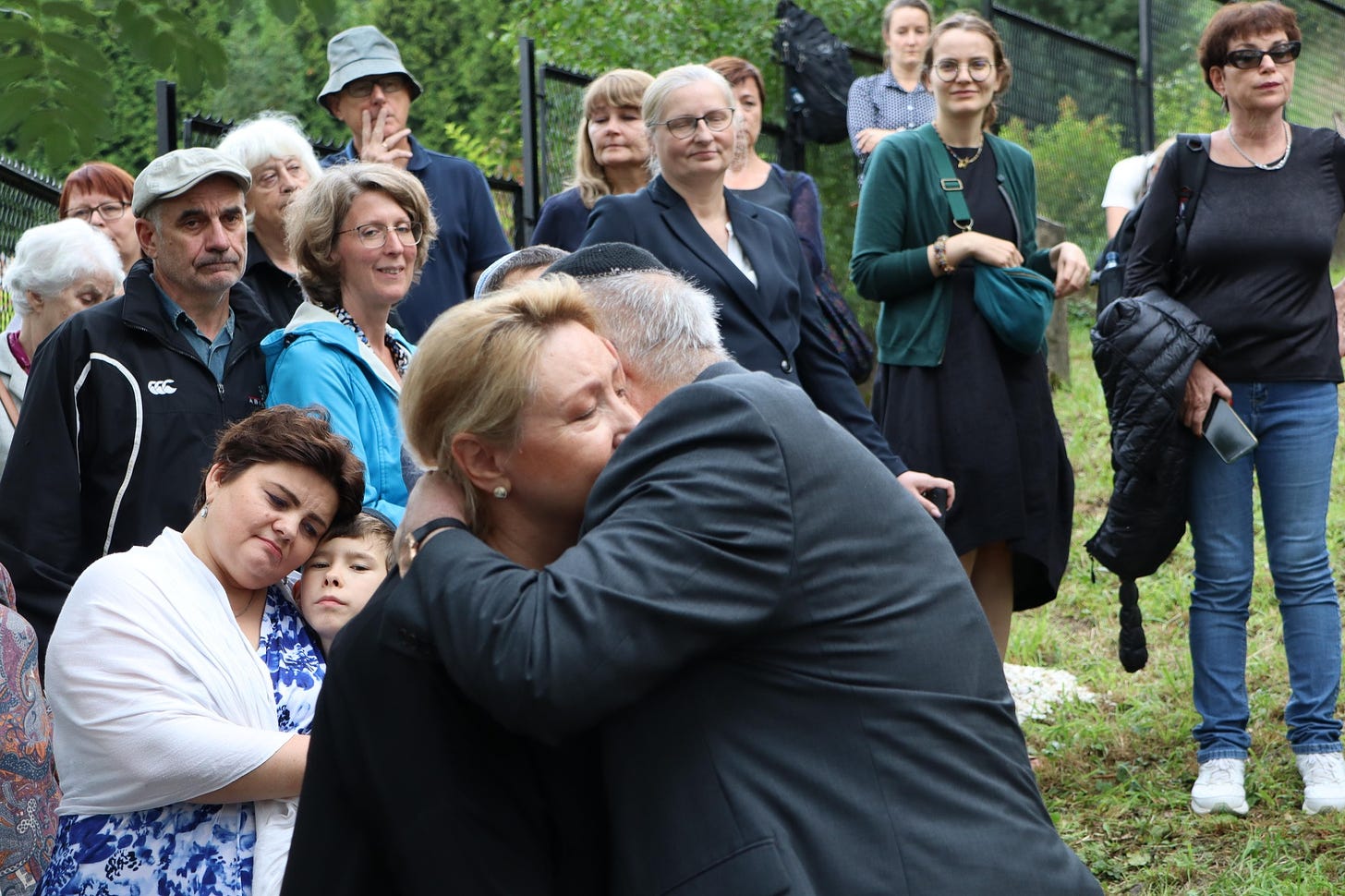Part Two of a Three Part Series describing the emotional events of the gathering of the descendants from the prewar Jewish population in Mszana Dolna in 2022. They came to observe the first ever Yahrzeit (memorial) commemorating exactly eighty years of the liquidation of the Jews of that village by the Nazis and their Polish collaborators.
SNAPSHOT #2: The Jewish Cultural Festival.
It was the first day of the commemoration. Urszula arranged a Jewish Cultural Festival to take place under a large open shed near the village center. Urszula believed that while it is important to remember what and who was lost, it is even more paramount that the Mszankas get to know the customs and traditions of their former neighbors.
Attending were the Mszankas, with their children, as well as the descendants, politicians and members of the local press.
For the descendants, we were beginning to know each other. For me, I was acquainted with some of the town people having visited Mszana Dolna on previous occasions, but not any of the descendants.
Art classes were provided. Jewish calligraphy was offered. Lectures on various Jewish topics was given. Jewish art was displayed, especially the beautiful drawings and paintings of Tomasz Krawczyk. The village enthusiastically participated. The descendants, at the same time, were getting to know each other at this setting.
At sundown, a Klezmer concert was provided by a talented trio. As I was listening, the spire of St. Michel was on the horizon. St. Michel, the church where, across the street, my Mother, uncles, family and cousins lived. I was in my own world for a long moment realizing that this is the first time in over eighty years that Jewish music permeated through the atmosphere of Mszana Dolna.
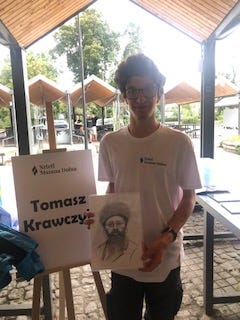
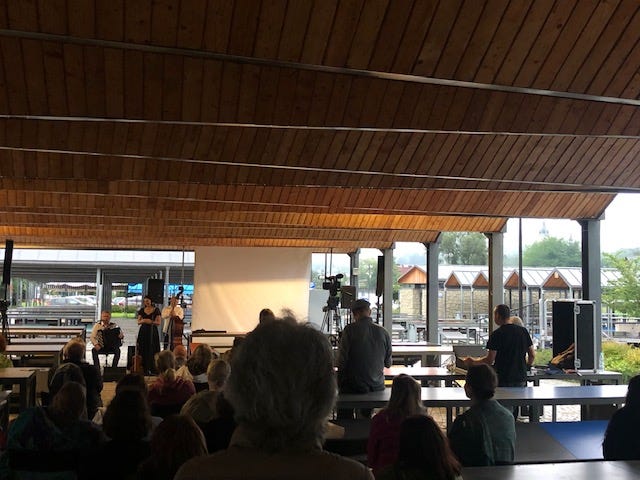
SNAPSHOT #3: The Mszankas, August 22, 2024
A town that for years was not enthused about learning about their former neighbors and their demise. Yet, today they came down in numbers to pay their respects, to remember, and to witness.
We, the descendants and notables were inside the sight of the main and second mass graves. The town, mostly students and scouts cleaned up the memorial and the surrounding garden. The Mszankas stood outside the perimeter, the fence. They stood in silence, listening to the tributes, and yes, a number of them were crying.
Afterwards, as per Jewish tradition, they picked up stones that were prepared for the attendees and laid them on top of the Memorial.
All in silence.
SNAPSHOT #4: Father Jerzy Razny, Parish Priest of St. Michels
There were a couple of priests who appeared and paid their respects. Father Jerzy Razny spoke on behalf of the parish. He spoke eloquently. He spoke of Mszankas who were helping the Jews, and of the then Parish Priest, perhaps the one who was friends with my great father, who opposed the Nazis and was sent to Auschwitz.
What was most poignant was towards the end was when Father Razny confessed that there were many among the Mszankas at the time who acted wrongfully and horrifically. This latter point went against the policy of the Polish government at the time. They wanted to suppress any expression that the Poles, too, were willing collaborators.
After the ceremony, Father Razny went to every descendant, shook their hands and engaged with them.
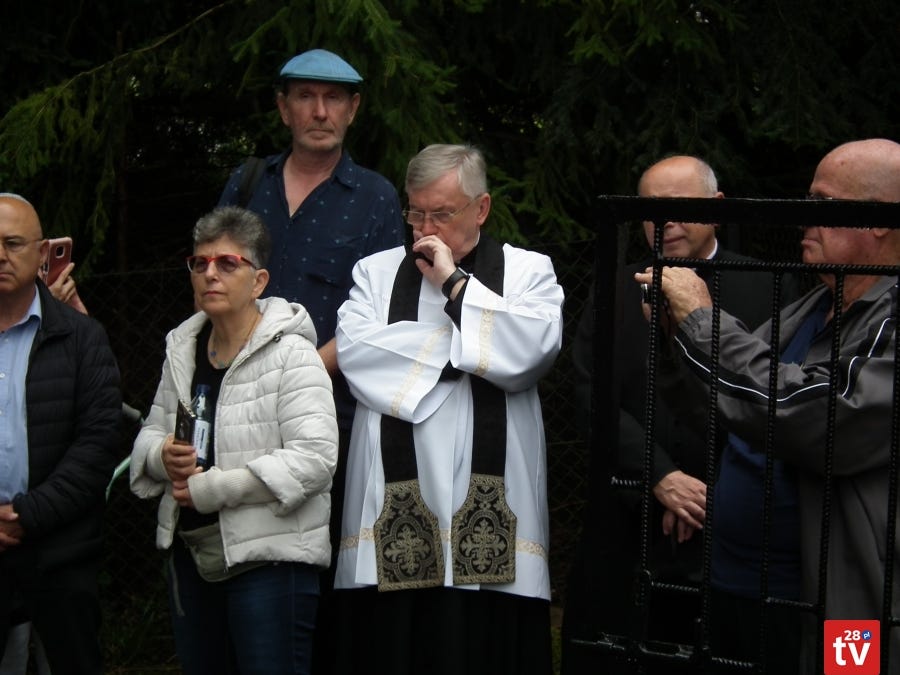
SNAPSHOT #5: Forum for Dialogue, Hanna Gospodarcyzk and Jagoda Szkarlat
The unsung hero during this three-day happening, was Forum for Dialogue (dialog.org.pl) Forum for Dialog (FfD) is a pure NGO dedicated to improve Jewish Polish relations.
By "pure" I mean that this NGO does not accept any funding from the Polish government. Taking money from the Polish government basically means this NGO will have to follow the government's revisionist version of the Holocaust. Not an easy task since they are under a lot of pressure to comply.
This has been an especially busy summer for them since hundreds of towns around Poland were liquidated around the Jewish fast day of Tisha B'Av in August of 1942. This holiday marks the saddest day of the Jewish year, and the Nazis cynically scheduled the liquidations at that time.
Many towns took advantage of FfD support, financial assistance, and guidance in setting up anniversaries and searching for survivors.
They were an invaluable resource and support to Urszula Rekucka.
Other towns were hoodwinked by crypto NGOs, that were supported by the government. They were forced to present the revisionist version of events, which basically laid entire blame on the Nazis and made no mention of Polish collaborators.
Hanna Gospodarczyk, Piotr Banasik, and Jagoda Szkarlat of the FfD were present during the three days. During that time, they made a film documentary about the Recukas.
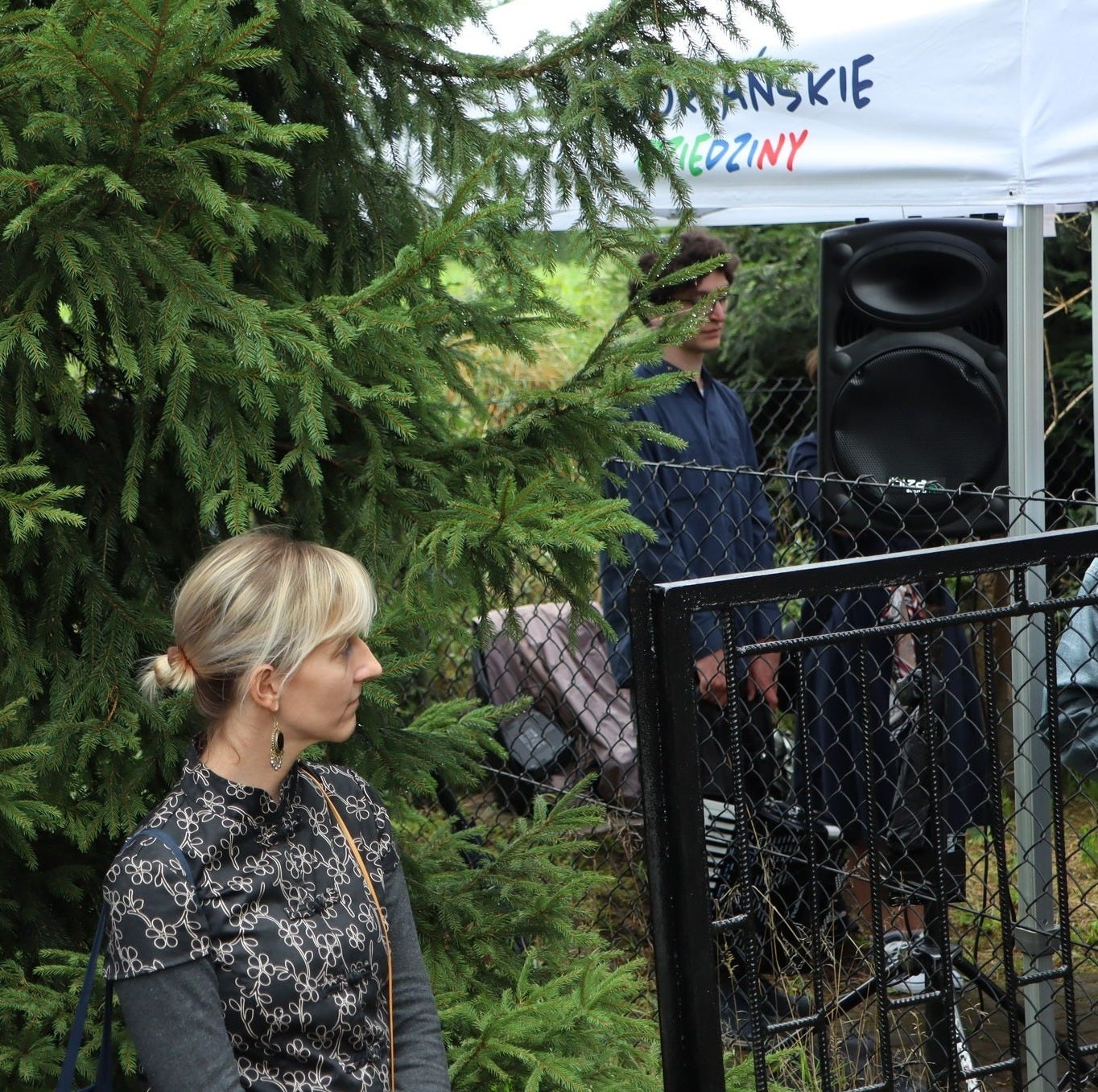
SNAPSHOT #6. The Consulate of Germany in Krakow
The German government sent a delegation from the German Consul to Poland, Frau Dr. Ursula Maier. A wreath was laid by the scouts on behalf of the German government.
The delegations faces were full of emotion. I had the microphone and made mention of how honored we should be at the presence of the delegation and spoke briefly how Germany since the 1950s made overt attempts to come to terms with the most horrendous act of human history.
I then approached Frau Dr. Ursula Maier. She was sobbing:
"I am so sorry."
" It is not my role to respond to
that, I cannot speak on behalf
of the victims."
"I know (pause), I know."
With that we embraced, I kissed her forehead, and remained for a couple of seconds, but seemed like eternity.
Without my being aware, months later Urszula told me the entire crowd was in tears.
SNAPSHOT #7: The Institute of National Remembrance
The Institute of National Remembrance is a government sponsored crypto NGO. A wreath was presented on their behalf, but they did not send a representative.
They wanted to have a platform to speak at the memorial. The organizers agreed to it, only if the Institute presented a draft of what they were going to say beforehand1. A draft was never submitted.
Sadly, it is two years later, and the Institute is still creating terrible waves.
This request is not unusual. It is common protocol for venues such as this.



